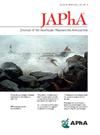弥合知识差距和误解:韩国公众对仿制药的看法——一项全国性的横断面调查。
IF 2.5
4区 医学
Q3 PHARMACOLOGY & PHARMACY
Journal of the American Pharmacists Association
Pub Date : 2025-07-28
DOI:10.1016/j.japh.2025.102491
引用次数: 0
摘要
背景:全球仿制药的使用正在增加;然而,迄今为止,很少有研究调查了韩国公众对仿制药的理解和看法。目的:本研究的目的是调查公众对仿制药的认知、知识、态度和经验,并确定与他们的态度相关的主要因素。方法:于2025年1月对韩国20至65岁人群进行了一项具有全国代表性的网络调查。问卷由四个部分组成,包括33个封闭式问题和2个开放式问题。采用卡方检验和Fisher精确检验进行组间比较。采用多变量logistic回归分析来确定与对仿制药态度相关的因素。使用R 4.4.3版本进行统计分析。结果:共纳入3000人(女性50.0%;平均[SD]年龄45.3[11.7]岁)。虽然所有参与者都表示熟悉“仿制药”一词,但40.3%的人表示对它的了解程度较低。大多数调查参与者(73.7%)对仿制药持积极态度;然而,他们继续报告对其有效性、安全性和质量的担忧。性别、年龄对仿制药的态度差异有统计学意义(p=0.007)。结论:知识水平越高的被调查者对仿制药的态度越积极;因此,提供准确和可获取的信息对于提高患者的接受度至关重要。此外,药剂师可能在促进通用替代中发挥关键作用。本文章由计算机程序翻译,如有差异,请以英文原文为准。
Bridging knowledge gaps and misconceptions: Public perceptions of generic medicines in South Korea – A nationwide cross-sectional survey
Background
The use of generic medicines is increasing globally; however, few studies have examined public understanding and perceptions of generics in South Korea to date.
Objective
The aim of this study was to examine the perceptions, knowledge, attitudes, and experiences of the general public regarding generic medicines, as well as to identify the main factors associated with their attitudes.
Methods
A nationally representative, web-based survey of people across South Korea aged between 20 and 65 years was conducted in January 2025. The questionnaire consisted of 4 sections, including 33 closed-ended and 2 open-ended questions. Chi-square and Fisher's exact tests were employed to compare groups. Multivariable logistic regression analysis was performed to identify the factors associated with attitudes toward generics. Statistical analyses were performed using R, version 4.4.3 (R Foundation for Statistical Computing).
Results
A total of 3000 people were included (50.0% female; mean [SD] age, 45.3 [11.7] years) in this study. While all participants reported being familiar with the term “generic medicine,” 40.3% demonstrated a low level of knowledge about it. The majority of survey participants (73.7%) expressed positive attitudes toward generic medicines; however, they continued to report concerns about their efficacy, safety, and quality. A statistically significant difference in the attitudes towards generic medicines was observed based on sex (P = 0.007), age (P < 0.001), insurance type (P = 0.002), information source (P = 0.009), and knowledge level (P < 0.001). Results from the multivariable logistic regression analysis indicated that both knowledge of generic medicines (adjusted OR = 2.11, 95% CI; 1.781-2.500) and age (adjusted OR = 1.01, 95% CI; 1.003–1.017) were significantly associated with positive attitudes toward their use. Providing adequate information and public education about generic medicines was recommended by 40.2% of participants to promote generic substitution. Furthermore, 80% of the participants expressed a high degree of trust in pharmacists regarding generic substitution.
Conclusion
Participants with higher levels of knowledge were more likely to hold positive attitudes toward generic medicines; therefore, providing accurate and accessible information is essential to enhance patient acceptance. Furthermore, pharmacists may serve a pivotal role in promoting generic substitution.
求助全文
通过发布文献求助,成功后即可免费获取论文全文。
去求助
来源期刊
CiteScore
3.30
自引率
14.30%
发文量
336
审稿时长
46 days
期刊介绍:
The Journal of the American Pharmacists Association is the official peer-reviewed journal of the American Pharmacists Association (APhA), providing information on pharmaceutical care, drug therapy, diseases and other health issues, trends in pharmacy practice and therapeutics, informed opinion, and original research. JAPhA publishes original research, reviews, experiences, and opinion articles that link science to contemporary pharmacy practice to improve patient care.

 求助内容:
求助内容: 应助结果提醒方式:
应助结果提醒方式:


